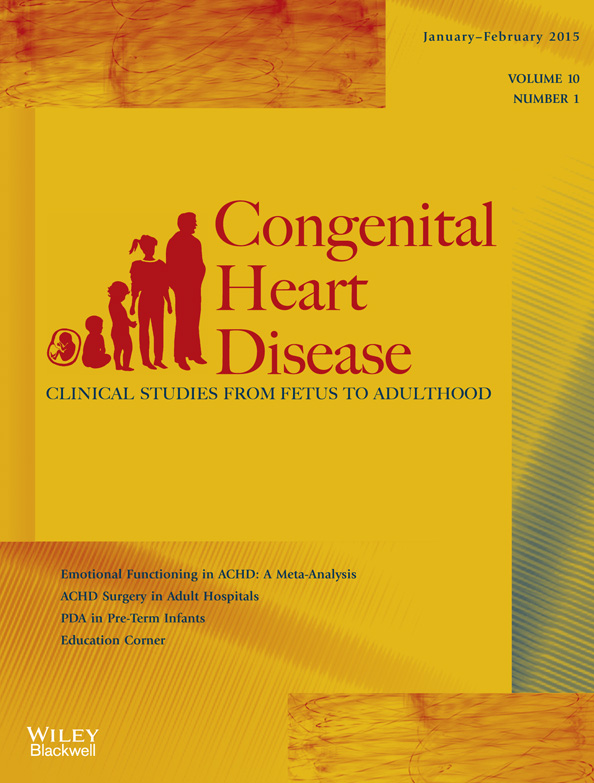Efficacy of Endothelin Blockade in Adults with Fontan Physiology
Funding:
Actelion Pharmaceuticals provided the study medication and funding support. Representatives of the company reviewed and commented on the protocol, but made no other contributions to its design, conduct, interpretation, or presentation.
Abstract
Objective
Phosphodiesterase-5 inhibitors have shown to improve cardiac output and functional capacity in Fontan patients. We sought to test the efficacy and safety of endothelin blockade with bosentan in adult patients with Fontan physiology.
Design
Ten patients were enrolled and seven patients completed this single-center open-label clinical trial. Patients were treated with bosentan for 4 months. Cardiac magnetic resonance imaging (MRI), 6-minute walking distance (6MWD), brain natriuretic peptide, and New York Heart Association functional class were compared before and after treatment using paired t-test.
Results
The 6MWD improved by 73 m, from a mean of 435 m (standard deviation [SD] = 92, standard error [SE] = 35) to 508 m (SD = 93, SE = 35) (P = .03). MRI resting aortic flow increased from 3.3 L/minute (SD = 1.27, SE = 0.73) to 4.4 L/minute (SD = 0.9, SE = 0.54) (P = .03). New York Heart Association class was unchanged in three patients, improved in three patients and worsened in one patient. Brain natriuretic peptide, aspartate aminotransferase, and alanine aminotransferase did not change significantly. Of the three patients with elevated baseline bilirubin, two normalized at the completion of the study, while the other was unchanged. Mean duration of therapy was 4.1 ± 0.51 months. Three adverse advents occurred. One patient complained of fatigue and chest pain after 87 days and withdrew from the study. After extensive workup, it was determined that her symptoms were not related to treatment. The second patient suffered palpitations and fatigue after 75 days; no concerning arrhythmias were identified and symptoms improved with increased antiarrhythmic dose. The third patient developed fatigue on therapy and decided to stop therapy; fatigue improved following drug discontinuation. There were no deaths or hospitalizations.
Conclusions
In this cohort of adult patients with Fontan physiology, endothelin blockade with bosentan resulted in improved 6MWD and MRI-derived resting cardiac output, suggesting a positive effect on pulmonary vascular resistance and pulmonary blood flow. Bosentan was well tolerated and hepatic function was not adversely affected.




